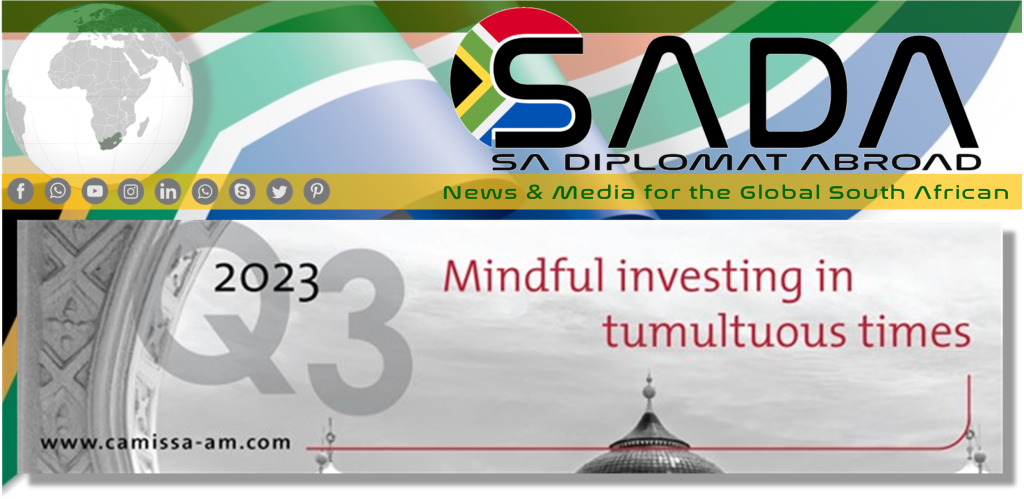Global economic activity has decelerated but is proving reasonably resilient in the face of very rapid monetary tightening. The US economy is demonstrating surprising strength, with a relatively resilient consumer underpinned by a strong labour market with very low unemployment.

Europe’s economy, which has been slow given China’s weak economic recovery, should benefit from improving consumer real disposable income due to firm wages and sharply falling inflation. Notwithstanding an extremely loose monetary policy, a very weak yen and weak exports to China, Japanese economic activity has been solid, with improving private consumption, business investment and continued export growth.
The Chinese economy’s recovery has fallen well short of expectations after the lifting of prolonged pandemic lockdowns. Although contact-intensive service industries are experiencing a rebound, the property market, manufacturing sector and export industries remain very weak. Near term growth prospects are strong, however, and should be boosted by government stimulus measures.
Economic activity in South Africa is severely constrained by an inadequate and acutely unstable electricity supply, the underperformance of transport infrastructure, poor service delivery from weak and revenue-hungry municipalities and chronically low business confidence. Additionally, the economic contribution from the mining sector that has benefitted from high commodity prices, is now far weaker. For these reasons, coupled with the sizable government debt burden and a large, unskilled population with high unemployment, we remain pessimistic regarding the structural growth rate for the local economy. Gradual steps taken by government toward economic reforms (now involving more productive private sector partnerships) are vital to stabilise the economy and prevent further decline.
The Islamic Equity Fund was down 1.9% in the third quarter, outperforming the peer group average (down 2.1%). It is up 13.6% over the last three years, in line with the competitor group average. Since its inception in 2009, the fund has returned 10.3% pa. The key positive contributors were Sasol, PPC and Wilson Bayley Holmes-Ovcon. MTN, Anglo Platinum and African Ranbow Minerals all contributed negatively.
The Islamic Balanced Fund was down 1.0% in the third quarter, outperforming the competitor group average (down 1.5%). It is up 12.1% over the last three years, ahead of the peer group average (up 10.2% pa). Since its inception in 2011, the fund has returned 7.6% pa. A positive contribution from Sukuks combined with a negative performance from global and local equities, were the key factors underpinning performance in the quarter. Notable positive contributors included Sasol, Mondi and PPC, whereas negative contributors included MTN, Anglo Platinum and African Ranbow Minerals.
Global equity contributed negatively to performance, with Albermarle, Bayer and Siemens Energy detracting from performance. Inpex, Shell and Micron Technology all contributed positively. Our portfolios currently have high exposure to PGM miners, Datatec and MTN and a diverse range of other mispriced stocks, including an array of deeply discounted local mid-cap stocks.
By: Camissa Asset Management investment team
Camissa Asset Management (Pty) Ltd is a licensed FSP.
www.camissa-am.com
